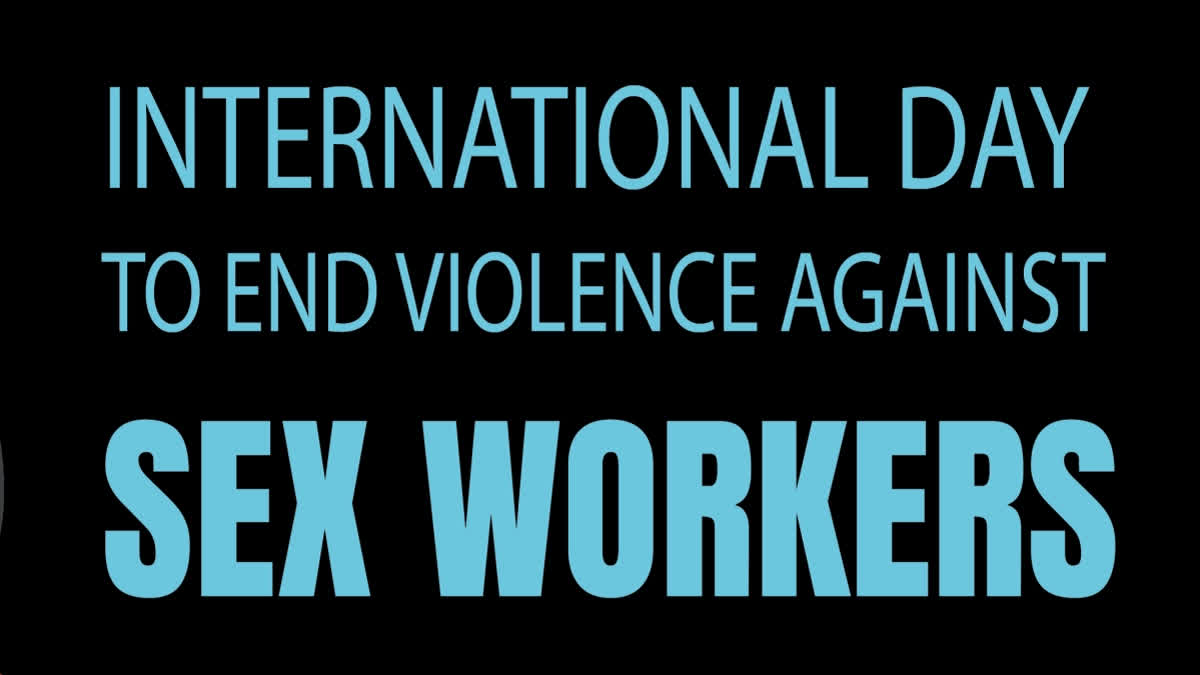Hyderabad: The International Day to End Violence Against Sex Workers is held annually on December 17 by the sex workers, their advocates, friends, families and allies. This day was created to call attention to hate crimes carried out against sex workers all over the world. The day focuses on the need to remove the social stigma and discrimination that have contributed to violence against sex workers.
International Day to End Violence Against Sex Workers highlights a major issue faced by sex workers, along with stigma, discrimination, and other human rights violations.
History:
- Annie Sprinkle and the Sex Workers Outreach Project USA (SWOP) first commemorated the day in 2003 as a vigil and memorial for the victims of the Green River Killer in Seattle.
- In the last 14 years, it has evolved into a worldwide, yearly event that honours the lives of sex workers who have been victims of violence globally, while advocating for the cessation of stigma and discrimination associated with sex work.
- Since 2003, Day to End Violence Against Sex Workers has united individuals from cities globally to collaborate and fight against discrimination while honouring victims of violence.
Purpose of the day:
- Increase awareness: Highlight the hate crimes and violence encountered by sex workers around the world.
- Eliminate stigma: Tackle the societal stigma and bias that lead to violence against sex workers
- Commemorate victims: The day encourages people to respect those harmed by violence towards sex workers
- Mobilize: Equip sex workers and their supporters to unite against discrimination.
- The International Day to End Violence Against Sex Workers has united workers from numerous cities globally to collaborate and stand against discrimination while honouring victims of violence.
What is Sex Work?
'Sex work' refers to the trading of money or items for sexual services, similar to any other type of employment that entails trading money for specific labour or services. Sex work is a broad term that includes various types of sexual labour, a few of which are outlined below. We employ the phrase "sex work" to emphasise that sex work constitutes work and to facilitate a broader conversation about labour rights and conditions. Individuals engaged in this profession and earning from it are referred to as 'Sex Workers'.
Red Umbrella Symbol:
The red umbrella is an important symbol for sex worker rights and is used for events that are held on December 17. The red umbrella symbol was first used by sex workers in Venice, Italy in 2001. Slovenian artist Tadej Pogacar collaborated with sex workers to create the "Prostitute Pavilion" and CODE: RED art installation for the 49th Venice Biennale of Art.
"Sex Worker" not "Prostitution'
No 'prostitute' terms to be used in court judgements, Supreme Court issues new handbook in 2023. According to the handbook, sex worker would be used in place of prostitute.
The Issue:
- Elevated Violence Levels: Emphasise the disturbingly high rates of violence and mistreatment experienced by sex workers around the world
- Stigmatisation and Discrimination: Explore the social stigma and discrimination that isolates sex workers and increases their vulnerability
- Absence of Legal Safeguards: Discuss how making sex work illegal can intensify violence and obstruct access to legal recourse.
The Impact on Sex Workers:
- Physical and Mental Well-being: Describe the physical and mental well-being impacts of violence, encompassing trauma, STIs, and substance misuse.
- Human Rights Infractions: Highlight that acts of violence towards sex workers constitute a violation of human rights.
- Economic Inequality: Examine how violence can undermine sex workers' means of livelihood and sustain poverty.
The Solutions:
- Decriminalisation: Support the decriminalisation of sex work to lessen stigma and ensure legal safeguards.
- Healthcare Accessibility: Emphasise the importance of having affordable and accessible healthcare services, particularly for HIV prevention and treatment.
- Law Enforcement Training: Advocate for law enforcement to approach sex workers with respect and dignity.
- Community Assistance: Explore the significance of organisations in the community that offer support services and advocacy efforts.
- Education and Awareness: Foster educational initiatives and awareness campaigns to confront stigma and encourage empathy.
Indian government initiatives to stop violence against Sex Workers:
The Indian government has taken several initiatives to stop violence against sex workers, including:
1. Ujjawala Scheme: A centrally funded program designed to combat trafficking and offer rescue, rehabilitation, and repatriation services for trafficking victims.
2. Anti-Trafficking Cell: A key unit within the Ministry of Home Affairs (MHA) that collaborates with state governments to address human trafficking. The cell additionally offers advice to states and union territories on ways to enhance law enforcement reactions.
3. Investigation Tracking System for Sexual Offences (ITSSO): A web-based tool that observes and records the progress of police inquiries in sexual assault cases.
4. National Database of Sexual Offenders (NDSO): A database designed to identify repeat offenders and provide notifications regarding sex offenders.



